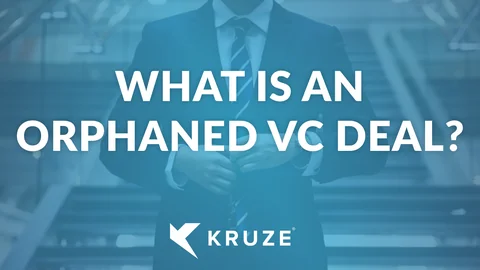
Your startup just got VC funding. Congratulations! But, then you receive notification that your venture capital partner just left their firm. Before you panic, read this article about “what is an orphaned VC”. Although it sounds awful, it is not as bad as you might think.
What is an Orphaned VC Deal?
Essentially an orphaned VC deal means the general partner at the venture capital fund that led the investment into your startup has left their fund and they are no longer on the board.
But even more important, they are likely no longer an advocate inside the fund for your company. So this puts you, the startup founder, in a very awkward position because you’re going to get assigned a new partner at that fund. However, deep down inside that new partner knows that they are not the ones who originated this deal and if things go great for your company, there’s a little bit of self-interest here at work in that they know that they are not going to get a ton of credit.
How Does an Orphaned VC Deal Affect a Startup?
- Difficult to get follow-on money even when you are doing well
- May get less attention at the Partnership
- If you are executing you can make it work
When companies lose their partner, they typically have a much harder time getting follow-on capital inside the partnership, getting those endorsements, and just kind of generally get less of the funds time. All of that work that was done by the partner during due diligence - perhaps even the entire due diligence checklist that they prepared for their investment in the startup - is basically lost.
Now, of course, there are exceptions to this. I think in the Khosla investment in Square, the partner ended up leaving and they did fabulously well. So it’s not like your company’s going to die right away or anything like that. You just need to know as a founder, that it’s going to be a little bit tougher and that extra money or the benefit of the doubt you may not get.
What a Startup Should Know in Regards to an Orphaned VC Deal
You want to pick someone who’s going to be at the fund for the long haul. One of my most fun cheats on this is just figuring out who owns the management company of the fund. The management company manages multiple funds at whatever firm. Typically there are a couple of partners that own the management company. Everyone else is an employee of the management company and the fund. A good rule of thumb is that the people who own the management company are not going anywhere. It’s very difficult to get rid of them.
Risks of & What to Do in an Orphaned VC Deal
It’s dangerous if you have a partner who is just not doing great in their investments and the fund is getting ready to raise another fund but they ask that partner to step away.
Also, another risk for you is maybe your partner is so good but they are junior and are going to leave to start their fund. So that means, probably you’re helping them do that. You’re part of their track record.
But when that partner leaves, life’s going to be a little bit more difficult for your startup. I recorded this because I want founders to understand this dynamic.
Choose wisely. It’s tough these days because we’re seeing fundraising rounds happen in a matter of weeks when it used to be a month or two.
Founders need to do due diligence on the partners they’re going to be working with.
Founders need to ask them what their long-term plans are and maybe do a little back channel and figure out who controls the purses at the fund. That will tell you a lot about your working relationship.
And again, if your partner does leave and you are an orphaned deal, it’s not the end of the world but you’re just going to have to work a little bit harder.
Looking to raise venture capital funding? Our clients have raised billions in VC funding, and we have prepared a free, downloadable VC due diligence checklist. Get it now so you are prepared for your company’s due diligence process!








